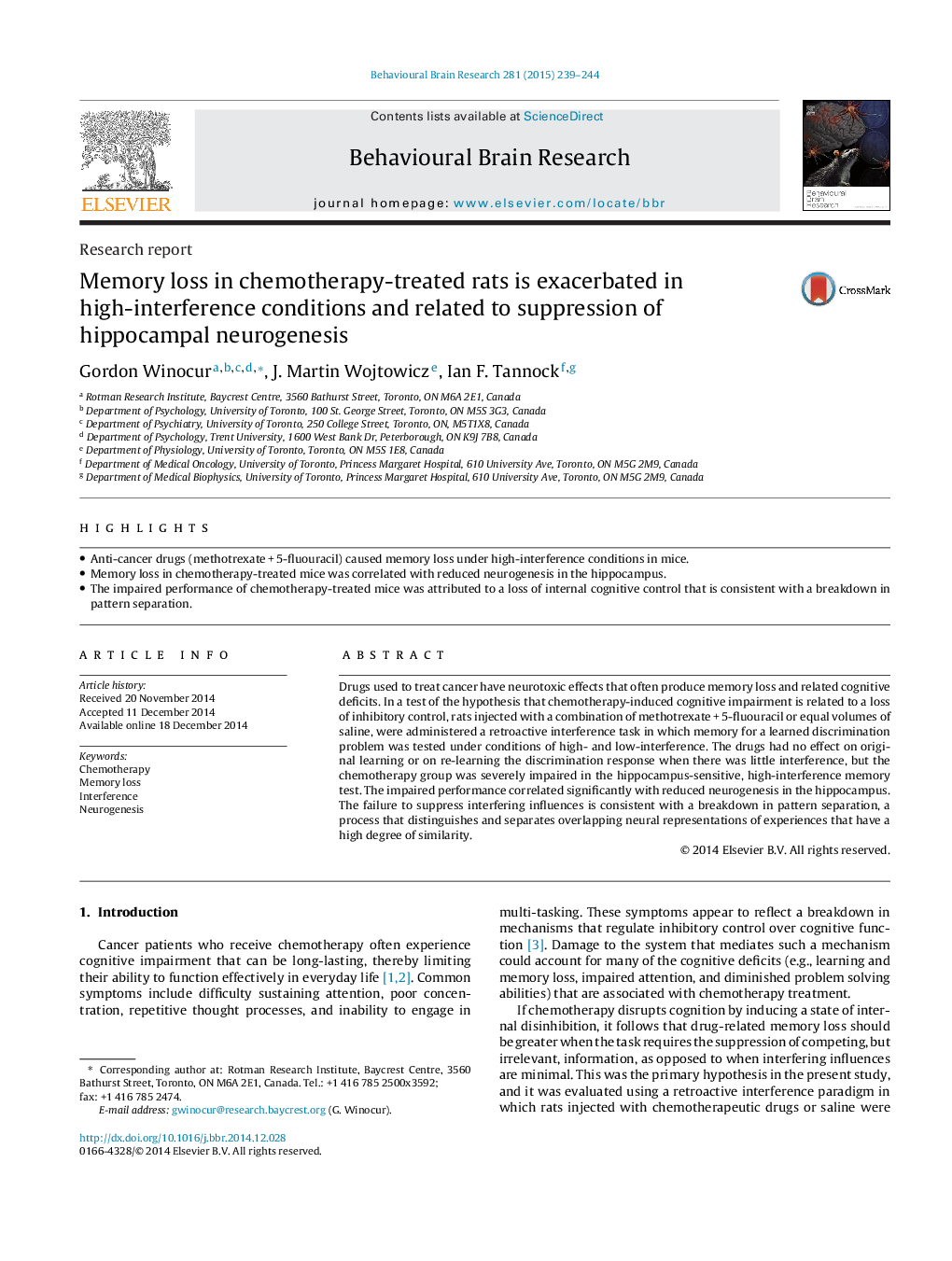| Article ID | Journal | Published Year | Pages | File Type |
|---|---|---|---|---|
| 6257010 | Behavioural Brain Research | 2015 | 6 Pages |
â¢Anti-cancer drugs (methotrexate + 5-fluouracil) caused memory loss under high-interference conditions in mice.â¢Memory loss in chemotherapy-treated mice was correlated with reduced neurogenesis in the hippocampus.â¢The impaired performance of chemotherapy-treated mice was attributed to a loss of internal cognitive control that is consistent with a breakdown in pattern separation.
Drugs used to treat cancer have neurotoxic effects that often produce memory loss and related cognitive deficits. In a test of the hypothesis that chemotherapy-induced cognitive impairment is related to a loss of inhibitory control, rats injected with a combination of methotrexate + 5-fluouracil or equal volumes of saline, were administered a retroactive interference task in which memory for a learned discrimination problem was tested under conditions of high- and low-interference. The drugs had no effect on original learning or on re-learning the discrimination response when there was little interference, but the chemotherapy group was severely impaired in the hippocampus-sensitive, high-interference memory test. The impaired performance correlated significantly with reduced neurogenesis in the hippocampus. The failure to suppress interfering influences is consistent with a breakdown in pattern separation, a process that distinguishes and separates overlapping neural representations of experiences that have a high degree of similarity.
